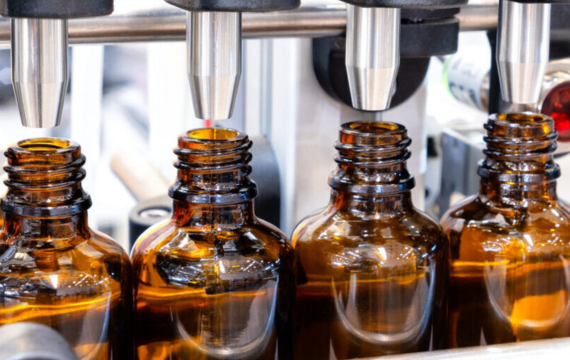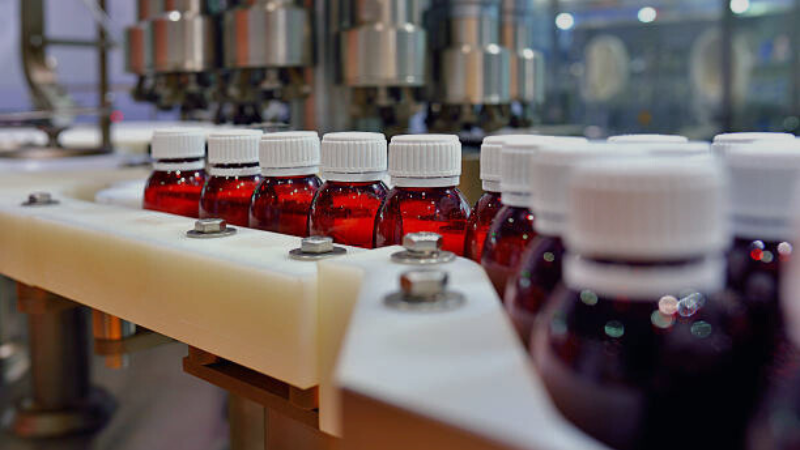
In today’s pharmaceutical industry, outsourcing syrup production to third-party manufacturers is a strategic approach for many companies. It allows brands to focus on marketing, sales, and research, while experienced partners handle the production, packaging, and compliance processes.
Third-party manufacturing is especially beneficial for companies like VTV Formulations, where quality, consistency, and regulatory adherence are non-negotiable. By collaborating with expert partners, brands can ensure timely delivery, high-quality standards, and cost efficiency.
Outsourcing syrup manufacturing also enables smaller companies to enter competitive markets without investing heavily in infrastructure or hiring specialized personnel. By leveraging the technical expertise, modern machinery, and regulatory knowledge of third-party manufacturers, brands can focus on business growth, distribution, and customer engagement.
Moreover, third-party manufacturers are adept at handling different types of syrups, including:
- Herbal Syrups: Cough remedies, immunity boosters, digestive aids
- Pharmaceutical Syrups: Antibiotics, antihistamines, vitamins
- Nutraceutical Syrups: Vitamin and mineral-enriched formulations
Understanding the variety of syrups and their manufacturing requirements is critical. Each type comes with its unique challenges, such as flavor masking, stability, microbial safety, and viscosity control. Working with experienced manufacturers ensures that these challenges are addressed professionally, resulting in market-ready products that meet both customer expectations and regulatory requirements.
Outsourcing also provides flexibility in production volumes, allowing companies to scale efficiently according to demand. Small pilot batches can be tested in the market before committing to large-scale production, mitigating risks and ensuring product acceptance.
Additionally, third-party partnerships offer brands the advantage of technical support. Manufacturers assist with formulation optimization, flavor enhancement, stability testing, and packaging solutions, ensuring that the final syrup is both effective and consumer-friendly.
In summary, third-party syrup manufacturing allows pharmaceutical companies to maintain high standards, regulatory compliance, and operational efficiency. By leveraging expertise, modern infrastructure, and industry best practices, brands can deliver high-quality syrups that meet market demands while focusing on core business growth.

Step-by-Step Guide to Syrup Manufacturing via Third-Party Partners
The manufacturing process of syrups requires a careful and systematic approach. Working with a third-party manufacturer ensures that every step is compliant, high-quality, and market-ready. Below is a detailed walkthrough:
- Formulation and Development
Before production begins, companies must define the composition of the syrup, including active ingredients, excipients, stabilizers, and flavoring agents. Experienced manufacturers often provide formulation optimization, suggesting improvements to enhance stability, taste, and therapeutic effectiveness.
For example, certain herbal syrups may require natural flavor masking to improve palatability, while pharmaceutical syrups like antibiotics may need precise pH control to maintain efficacy. Manufacturers may also conduct pilot batches and stability studies to ensure shelf-life and product performance.
- Raw Material Procurement and Verification
Raw materials are the foundation of quality syrup manufacturing. Third-party manufacturers source ingredients from verified suppliers and check Certificates of Analysis (CoA) for each batch.
This ensures:
-
Purity and potency of active ingredients
-
Absence of contaminants or heavy metals
-
Compliance with regulatory standards
Manufacturers also maintain multiple suppliers for critical ingredients to avoid production delays due to shortages, ensuring timely batch completion.
- Production Process
Syrup production involves several critical stages:
-
Mixing: Ingredients are blended in precise ratios to achieve uniform consistency.
-
Heating (if required): Certain formulations require controlled heating for dissolution or sterilization.
-
Filtration: Removes particulates to maintain clarity and prevent contamination.
-
Homogenization: Ensures uniform texture, color, and stability.
Manufacturers often employ automated equipment for mixing, heating, and filling, reducing human error and maintaining batch-to-batch consistency.
- Quality Control During Production
In-process testing is vital to ensure compliance with specifications. Parameters like pH, viscosity, microbial limits, and color are monitored at each stage.
Post-production, final batch testing is performed to verify:
-
Active ingredient concentrations
-
Microbial safety
-
Stability and shelf-life
-
Compliance with regulatory guidelines
- Packaging and Labeling
Finished syrups are filled into glass or PET bottles, capped, and labeled. Manufacturers may provide custom branding and packaging solutions to help companies differentiate their products. Proper packaging protects the syrup from contamination and preserves quality.
- Storage and Logistics
After packaging, syrups are stored under controlled conditions to maintain stability. Some third-party partners also handle logistics, ensuring products are delivered to distributors or retailers safely and on time.
- Documentation
Every batch requires proper documentation, including Batch Manufacturing Records (BMRs), test reports, and CoAs. This ensures traceability, regulatory compliance, and readiness for audits.
By following this structured process, companies can produce syrups that are safe, effective, and ready for market launch, while leveraging the expertise and infrastructure of third-party manufacturers.
Advantages of Third-Party Syrup Manufacturing
Outsourcing syrup production offers several strategic advantages. Below are the key benefits, explained in detail:
- Regulatory Compliance : Third-party manufacturers adhere to WHO-GMP, ISO, and local regulations, ensuring that every batch meets legal requirements. Compliance reduces the risk of penalties, product recalls, and legal complications.
- Superior Product Quality : Manufacturers use modern machinery, controlled environments, and trained personnel to produce syrups that are consistent, potent, and free from contamination. Quality control labs perform microbial, chemical, and physical tests on every batch.
- Cost Savings : Outsourcing eliminates the need for heavy capital investments in production equipment, infrastructure, and specialized staff. Companies can save on operational costs while maintaining high-quality output.
- Scalability : Manufacturers can efficiently handle small trial batches for new products or large commercial-scale production for established brands. This flexibility allows companies to respond quickly to market demand.
- Time Efficiency : By outsourcing production, brands save time in setting up facilities, sourcing materials, and managing compliance. This enables faster product launches and quicker market penetration.
- Technical Support : Experienced manufacturers provide formulation guidance, stability studies, and process optimization. This technical expertise ensures that products are effective, palatable, and stable, giving brands a competitive advantage.
- Risk Mitigation : Third-party partners manage contamination risks, deviations, audits, and regulatory inspections. This reduces operational, legal, and financial risks for the brand.
- Focus on Core Business : With production handled externally, companies can dedicate resources to marketing, sales, distribution, and R&D, enhancing growth and profitability.
- Access to Advanced Technology : Third-party manufacturers often invest in modern filling, homogenization, and sterilization equipment, which may not be feasible for smaller companies to acquire independently.
- Market Responsiveness : Flexible production capacities enable quick adaptation to changes in demand, seasonal trends, or new product launches.
By outsourcing syrup production to expert manufacturers, pharmaceutical companies benefit from quality assurance, operational efficiency, and business growth simultaneously.